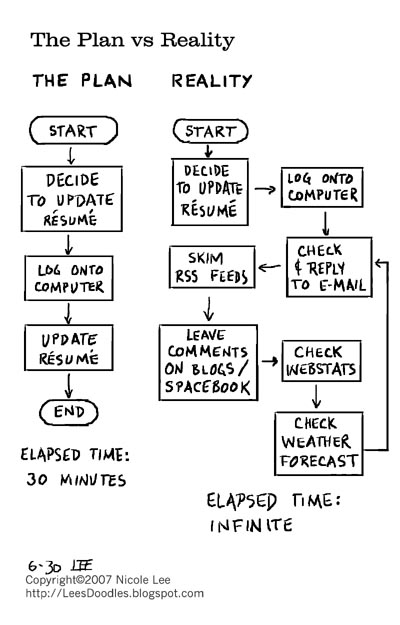Via “Teresa Nielsen Hayden”:http://www.nielsenhayden.com/makinglight/ come “Lore Sjöberg’s views on Wikipedia.”:http://www.wired.com/news/columns/0,70670-0.html He says in part:
Wikipedia is a new paradigm in human discourse. It’s a place where anyone with a browser can go, pick a subject that interests them, and without even logging in, start an argument. … The Wikipedia philosophy can be summed up thusly: “Experts are scum.” For some reason people who spend 40 years learning everything they can about, say, the Peloponnesian War — and indeed, advancing the body of human knowledge — get all pissy when their contributions are edited away by Randy in Boise who heard somewhere that sword-wielding skeletons were involved. And they get downright irate when asked politely to engage in discourse with Randy until the sword-skeleton theory can be incorporated into the article without passing judgment.
This reminds me of my friend “Dave Chalmers”:http://consc.net/ and his abortive efforts to suggest some clean up of the Wikipedia entry on “consciousness”:http://en.wikipedia.org/wiki/Consciousness, especially the bits relating to his own well-known book _The Conscious Mind_. He registered a username and — politely — made a suggestion. “The results”:http://en.wikipedia.org/wiki/Talk:Consciousness/Archive01 were not encouraging:
As can be seen above, most of your criticisms are not supported. Please demonstrate your familiarity with the field by supporting your critique with reasoned arguments rather than pejorative comments. *loxley* 08:50, 3 October 2005 (UTC)
Marshall McLuhan here. *Philos* is right about each of the points above. The philosophy section would be much improved if it reverted to the “philosopher’s” edit of a few days ago. *DavidChalmers* 23:51, 4 October 2005 (UTC)
How is he right about the points above? The points are clearly detailed and you could easily explain your criticism. Please could you also explain how cutting the historical, empirical descriptions of conscious experience and supervenience would improve the article. Why do you have the ID “DavidChalmers” yet use the name Marshall McLuhan? The only famous philosopher called Marshall McLuhan died in 1980. Are you taking the piss or are you philos with a duplicate ID? *loxley* 11:13, 5 October 2005 (UTC)
The user with ID DavidChalmers who claims to be the deceased and famous Canadian philosopher Marshal McLuhan should note that using the name of a living, prominent person as a USERID is against Wikipedia guidelines. *loxley* 11:19, 5 October 2005 (UTC)
My userID is my own name (I presume that’s allowed). “Marshall McLuhan” was an _Annie Hall_ reference. Sorry if that wasn’t clear. I don’t think it would be appropriate for me to get into a long argument involving an entry where I am discussed. But since you’ve invoked my name twice (here and on the history page) in support of your claims, I thought I should register my judgment here. I appreciate all that you and others have done to build up this entry. But your discussion in the article and above shows fairly basic misunderstandings of supervenience (the Derrida quote has no bearing on supervenience), direct realism (it’s not true that direct realists see the explanatory gap in terms of access consciousness), functionalism (it’s not true that “experience of” is a functionalist or eliminativist locution), and so on. I’m sorry! And I’ll bow out now. *DavidChalmers* 23:36, 5 October 2005 (UTC)
Dear Prof. Chalmers, Thank you for your comments. I respect your willingness to bow out of decisions where conflicts of interest emerge, but I would like to stress that your informed opinion and guidance is most valuable here. This page has great potential to teach many curious readers about our current understanding of consciousness in an accurate and approachable way. I believe that all here would agree that this subject is a difficult one to get right and teach well, and thus your contributions here are most certainly a welcome public service. Many thanks for your past (and hopefully future) contributions. Cheers, *sallison* 01:47, 6 October 2005 (UTC)
Sallison: yuk. Chalmers, if that is your name, your criticisms are not in the spirit of Wikipedia. Don’t wave your hand with a pompous air of authority, get them dirty by actually contributing. I have given details of the assertions in the philosophy section that you can rebut in the section below. *loxley* 10:56, 6 October 2005 (UTC)
I’m not sure how things stand these days with that entry. Hopefully it improved.

